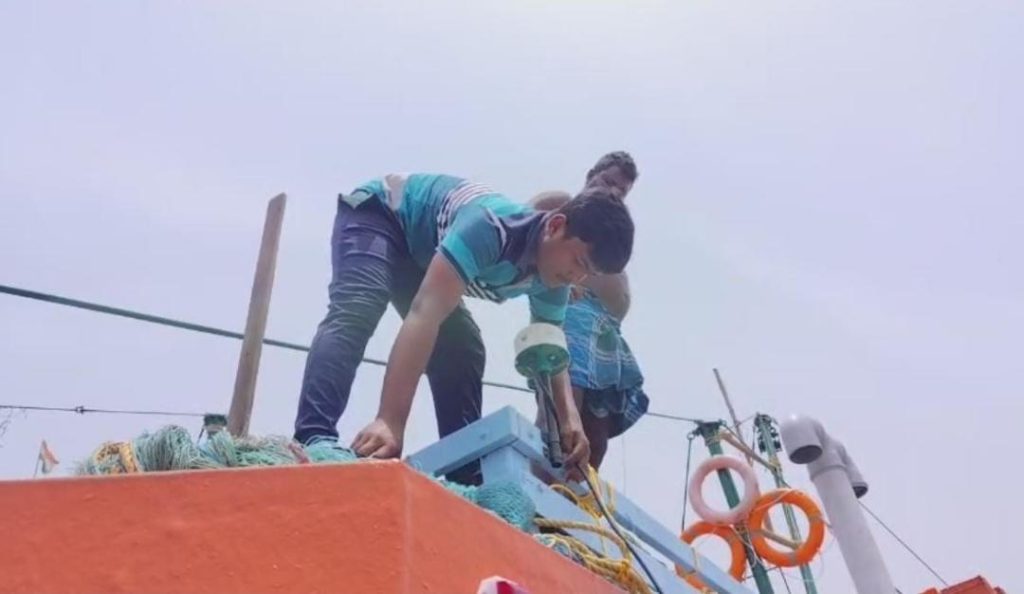
ISRO’s Transponder Technology Protecting West Bengal’s Fishermen
Deep-sea fishing is a perilous profession, and the fishermen who venture into the treacherous waters of the Bay of Bengal are no exception. The unpredictable weather conditions, strong currents, and rough seas make it a daunting task to navigate the waters safely. However, the Indian Space Research Organisation (ISRO) has come up with a revolutionary solution to ensure the safety of these brave fishermen. ISRO’s Satellite-Based Maritime Safety Assistant System, or Transponder, is a state-of-the-art technology that is being installed in trawlers to enhance communication, location tracking, and emergency response.
The Transponder technology has been installed in over 300 trawlers in West Bengal, providing a high-tech safety lifeline to deep-sea fishermen. This innovative solution is a game-changer for the fishing community, which has been plagued by accidents and fatalities in the past. The technology allows for real-time tracking of trawlers, enabling the authorities to respond quickly and effectively in case of an emergency.
The Transponder technology uses a combination of satellite and terrestrial communication systems to provide a seamless communication network. The system consists of a transponder device installed on the trawler, which sends and receives signals to and from the Indian Maritime Satellite (INSAT) and the Indian Regional Navigation Satellite System (IRNSS). The device is equipped with a GPS receiver, antenna, and a control unit, which enables the fishermen to communicate with the coastal authorities in real-time.
The benefits of the Transponder technology are numerous. For instance, the system allows fishermen to send distress signals in case of an emergency, which can be received by the coastal authorities immediately. This enables the authorities to respond quickly and effectively, reducing the risk of loss of life and property. Additionally, the system provides real-time tracking of trawlers, enabling the authorities to monitor their movement and detect any signs of distress.
The Transponder technology has already shown promising results. According to reports, the technology has helped to reduce the number of missing persons in the fishing community by 50%. The technology has also enabled the authorities to respond quickly and effectively in case of an emergency, reducing the risk of loss of life and property.
The installation of the Transponder technology in trawlers is a collaborative effort between ISRO, the West Bengal Government, and the fishing community. The project was initiated by the West Bengal Government, which recognized the need for a safety solution for the fishermen. ISRO was approached to develop the technology, and the project was executed in partnership with the fishing community.
The fishing community in West Bengal is elated with the installation of the Transponder technology. “This technology has given us a new lease of life,” said a fishermen from the coastal town of Kakdwip. “We can now communicate with the authorities in real-time, and we feel much safer while fishing. The technology has reduced our anxiety levels, and we can now focus on our work without worrying about our safety.”
The success of the Transponder technology in West Bengal is a testament to the innovative spirit of ISRO and the collaborative efforts of the government and the fishing community. The technology has not only enhanced the safety of the fishermen but also boosted the confidence of the fishing community.
The installation of the Transponder technology in trawlers is a significant step towards ensuring the safety of fishermen in West Bengal. The technology has the potential to be replicated in other states and countries, where deep-sea fishing is a common profession. ISRO’s Satellite-Based Maritime Safety Assistant System is a shining example of how technology can be leveraged to improve the safety and security of the fishing community.
Source: https://thecsrjournal.in/isro-transponder-technology-brings-safety-revolution-west-bengal-fishermen/






